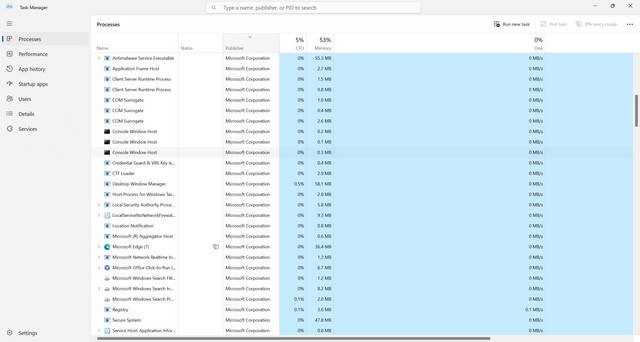When you open the Task Manager on your Windows computer, you may notice a process called “Windows Search” running in the background. This can be a cause for concern for some users, as they may wonder why this process is running and if it is necessary for their system’s performance. In this article, we will explore the Windows Search process, its purpose, and why it is running in Task Manager.

What is the Windows Search process?
The Windows Search process, also known as “SearchIndexer.exe,” is a system service that is responsible for indexing and cataloging files on your computer’s hard drive. It creates an index of file names, properties, and contents to provide faster and more efficient search results when you use the Windows search feature.
The indexing process allows you to quickly find files, folders, and applications on your computer by searching for specific keywords or phrases. Without the Windows Search process, searching for files would be much slower and less accurate.
Why is the Windows Search process running in Task Manager?
The Windows Search process runs in Task Manager because it is a system service that is constantly working in the background to keep your search results up to date. It needs to run continuously to ensure that any changes or additions to your files are reflected in the search index.
When you perform a search on your computer, the Windows Search process quickly retrieves the relevant results from the index it has created. By running in the background, it can update the index in real-time, ensuring that your search results are always accurate and up to date.
Is the Windows Search process necessary?
Yes, the Windows Search process is necessary for the proper functioning of the search feature in Windows. Without it, searching for files and folders would be significantly slower and less efficient.
However, if you rarely use the search feature or find that it is consuming too much system resources, you can choose to disable or modify the indexing options. This can be done by accessing the Indexing Options in the Control Panel and adjusting the settings according to your preferences.
How does the Windows Search process impact system performance?
The impact of the Windows Search process on system performance depends on various factors, such as the size of your hard drive, the number of files you have, and the speed of your computer.
During the initial indexing process, the Windows Search process may consume a significant amount of system resources, including CPU and disk usage. This is because it needs to scan and analyze all the files on your computer to create the search index.
Once the initial indexing is complete, the Windows Search process operates in the background and uses minimal system resources. It only consumes resources when it needs to update the index due to changes in your files.
If you notice that the Windows Search process is consistently using a high amount of system resources or causing performance issues, it could be a sign of a problem. In such cases, it is recommended to scan your computer for viruses or malware using a reliable security software like Malwarebytes Free.
Conclusion
The Windows Search process is an essential system service that is responsible for indexing and cataloging files on your computer’s hard drive. It runs in the background to ensure that your search results are fast, accurate, and up to date.
While the Windows Search process may consume system resources during the initial indexing process, it operates efficiently once the index is created. If you experience performance issues related to the Windows Search process, it is recommended to scan your computer for viruses or malware using a trusted security software like Malwarebytes Free.
Understanding the Windows Search process and its role in Task Manager can help you make informed decisions about managing system resources and optimizing your computer’s performance.



